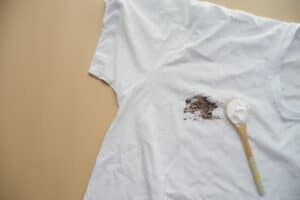Recycling Prescription Glasses and Sunglasses - Your Options Covered
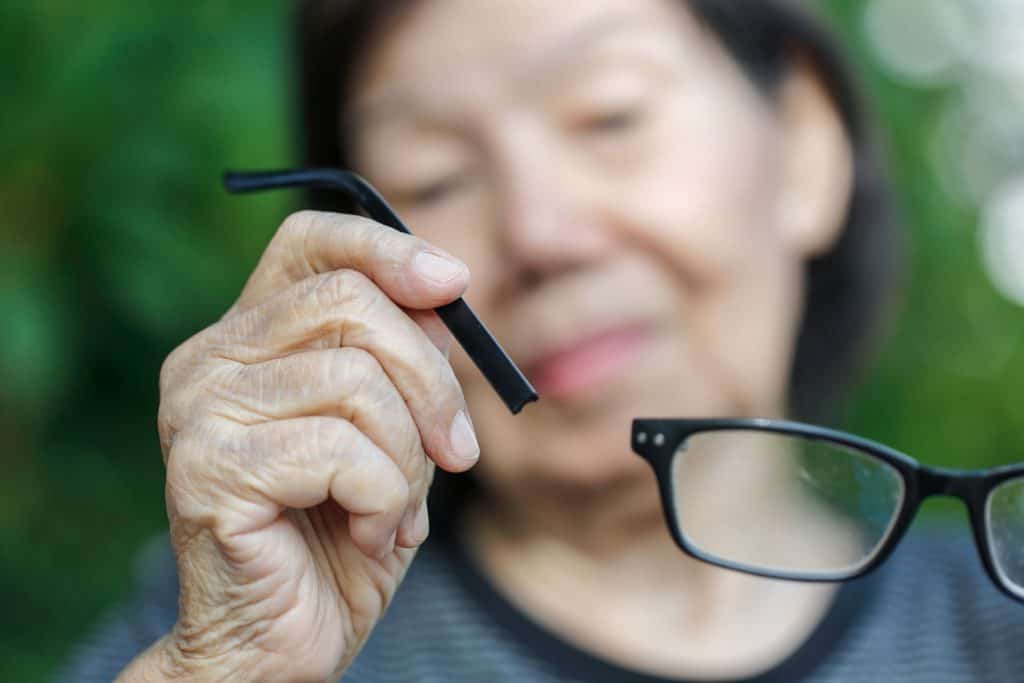
This post was last updated in 2023
While we often prioritise recycling common materials such as plastic, glass, and paper, it is important not to overlook the potential to recycle more unusual items, including sunglasses and prescription glasses.
Considering that the volume of sunglass production is expected to reach close to 1 billion per year by 2027 and over 10 billion per year by 2027 for eyewear, that’s a lot of glasses that could end up in landfill each year! So it’s important to explore these options.
In this blog post, we will delve into the world of eyewear recycling, exploring the possibilities and processes involved in recycling sunglasses and old prescription glasses.
Specifically, you will find answers to the following questions about glasses:
And answers to the following questions about sunglasses:
If your glasses have a lot of wear left in them or you think they can be repaired and reused, check out this blog post: Don’t Throw Them Away – Practical Uses for Your Old Glasses
If all you are after is some info on where to send your eyewear for recycling, jump to How can I recycle old glasses?.
Can old prescription glasses be recycled?
Whether old prescription glasses can be recycled depends on the materials used. Typically metal and plastic glass frames can be recycled, as can glass and plastic lenses. Because of the mix of materials used, it’s best to rely on a sorting facility to work out what can be recovered.
Frames are typically made from two types of materials – plastics or metals.
Plastic frames are typically made from zyl and nylon. Zyl is just another word for cellulose acetate and it is essentially a plastic, formed through the combination of plant fibres (cellulose) and plasticisers.

These plastics are not commonly recycled, but the technology does exist to recycle these materials. Contamination can be an issue, which is why proper cleaning and sorting of the material is key.
Metal frames are typically made from titanium or carbon fibre. They can be also made from Monel (nickel-copper alloy), beryllium, stainless steel and aluminium. You can even get frames made from gold or sterling silver. And there are proprietary blends, where the exact material source is unknown, such as Flexon (these are metal frames although what blends of metals is unclear).
Essentially all metals can be recycled, except those that contain dangerous containments.
As eyewear is something that comes in contact with our bodies, there are regulations that prevent dangerous containments from being used in these products. Therefore metals used in eyewear should be recyclable.
Lastly, there are frames made from alternative materials like bamboo and wood. You would ideally compost these, not recycle them.
But the frame is just one component – you have lenses (more on this in the next section) and smaller pieces like screws, nose pieces and ear pads.
That’s a lot of components that need to be separated for recycling!
After some research and contacting several optical retail stores, there seems to be only one organisation worldwide that has a dedicated program that can sort all this out – the Lions Club.

The Lions Club have set up Eyeglass Recycling Centres in various locations worldwide. These centres collect unwanted eyewear to sort them into those that can be reused and those that can not. Those that can be reused are donated to those in need.
As for the rest, well the Lions Club operating guidelines state that: precious metals and other scraps are to be reclaimed and shipped to a facility for processing. It appears that the Lions Club earns income from selling scrap materials.
I have contacted the Lions Club in Australia for further information on this but I have yet to hear from them. I am curious about how they deal with different materials types, the difficulty with recycling lenses, what happens with smaller parts like screws and nose pieces and if their program covers sunglasses as well.
So can I hand over heart say that every piece of broken eyewear sent to the Lions Club is recycled? No, not yet.
But as noted above and in the next section, each component of eyewear can be recycled (except for bamboo and wooden frames) and the collection points for the Lions Club in my area do take eyewear not fit for wear. Presumably they take these for recycling.
Can prescription lenses be recycled?
It is possible to recycle prescription lenses, although the process is not easy since lenses are made from a variety of materials and are treated with different chemicals. There aren’t many places that are known for accepting lenses for recycling but they do exist.
- CR-39
- Polycarbonate
- Trivex/hivex and
- Hi-Index polymers
The plastic used in lenses can not be recycled in the same way as plastic water bottles or containers that are recycled regularly. This is because these plastics contain a mixture of materials, chemicals and coatings, which require further processing and treatment before they can be properly recycled.
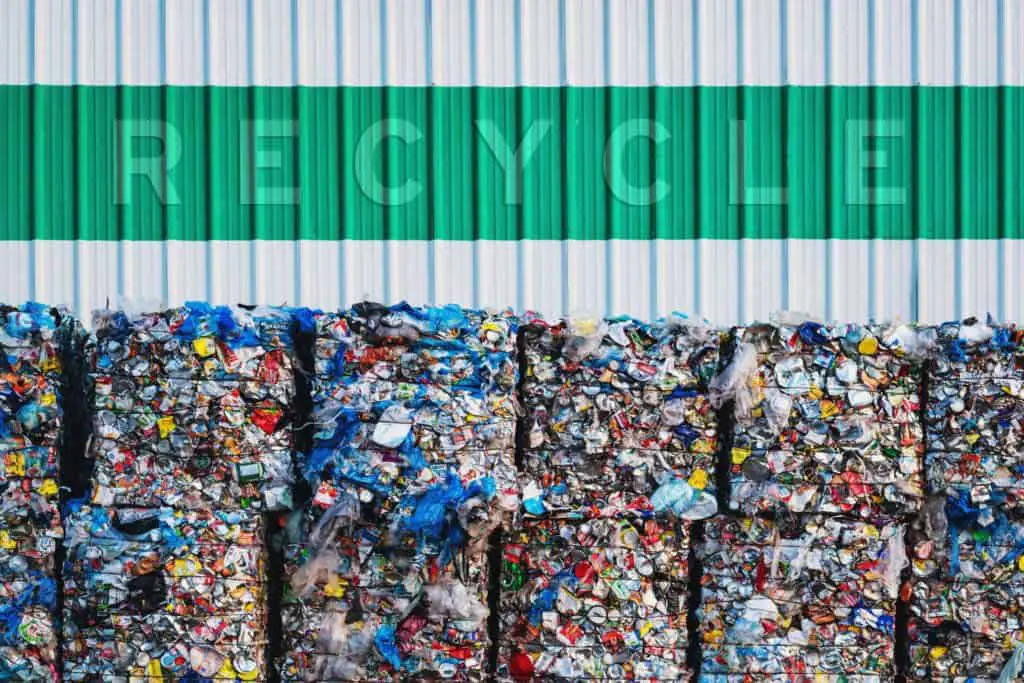
When it comes to glass lenses, you would think that they can be recycled easily – glass is known to be infinitely recycled. It’s one of those items you can throw into your household recycling bin right?
Well no, not really. Firstly, not all glass is recyclable through your household recycling bin. Glass that has been treated (such as oven-proof dishes and drinking glasses) or glass that contains other materials (such as mirrors and light globes) can’t be recycled with standard glass as they require further processing and treatment to be recycled.
Glass lenses fall under this category – they need to be processed and treated separately before they can be recycled.
In all cases, lenses CAN be recycled but they require further processing and treatment before they enter the recycling process.
The Lions Club recycling program is again the only place I could find that could potentially deal with these issues. While I have not been able to confirm with them how they deal with these problematic aspects of recycling glasses, by all accounts this is the best option for those of us in Australia, and worldwide.
One other related point – contact lenses. Contact lenses are typically made from soft hydrophilic plastic. These too are recyclable.
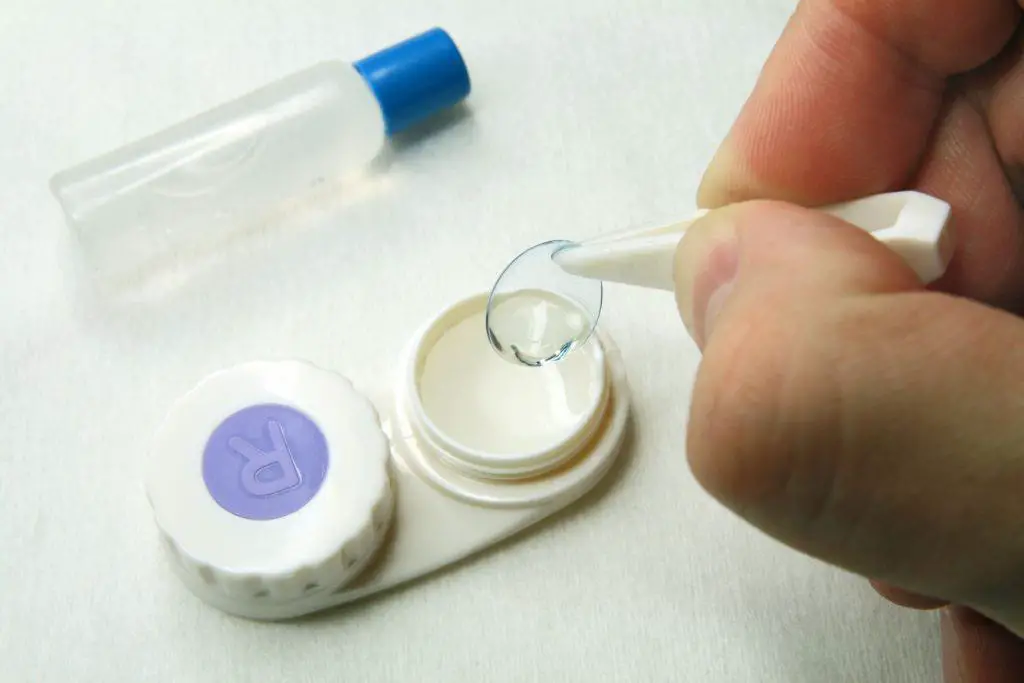
Terracycle offers recycling services for these types of lenses, and the blister packs they come in. Unfortunately, it does costs $180 (minimum) for this service – not a viable option for anyone I imagine!
None of the major eyewear retailers (like Specsavers and OPSM) collect used contact lenses for recycling. Let’s hope with time that changes.
How can I recycle old glasses?
The best way to ensure your old glasses are recycled is to send them to the Lions Club Recycle for Sight Program. You can post your glasses directly to them or you can drop them off at various collection points around Australia.
For those in Australia, you can post your glasses directly to the Lions Club by sending them to:
Lions Recycle for Sight
PO Box 3021
CLONTARF MDC 4019
Don’t send the case or pouch – just wrap them in bubble wrap or put them in a padded bag.
An easier option may be to take your glasses to various collection points around Australia. Certain organisations have partnered with the Lions Club to act as collection points.
Specsavers is one of their partner organisations. Each store should be able to take your old eyewear to pass onto the Lions Club. You can find a list of store locations here.
HCF is another partner organisation. They have collection points at each of their branches, which are listed here.
My local council has a collection point set up in their council building, so you might want to see if something similar exists in your council building:
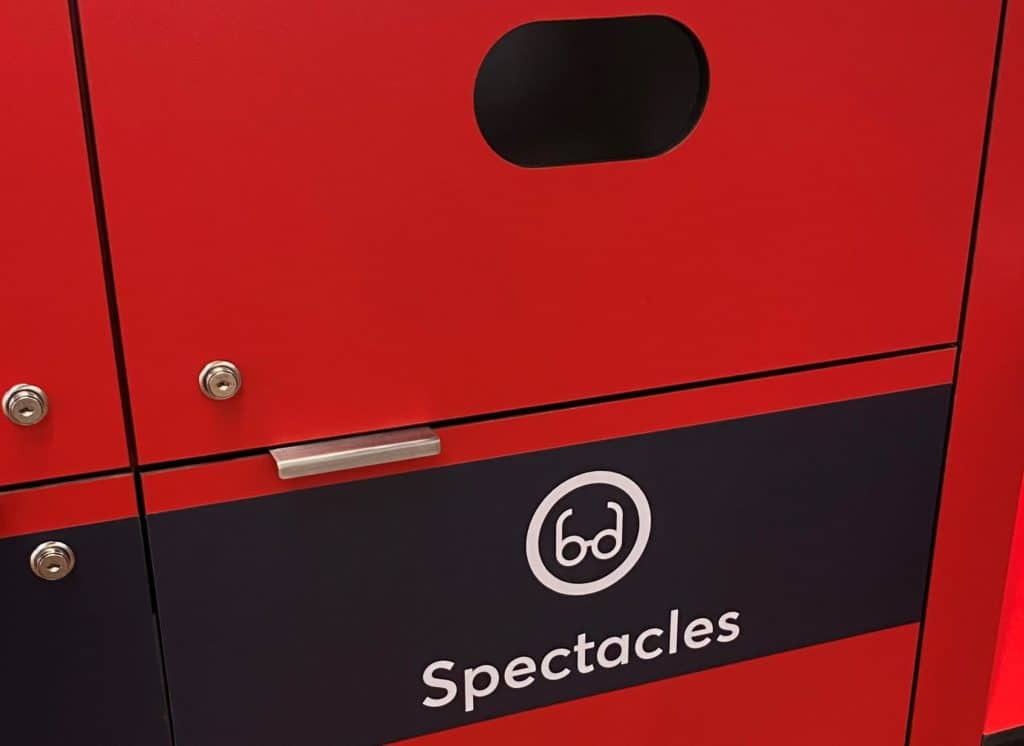
There are smaller optical and eyewear stores that have also partnered with Lions Club – too numerous to mention. It’s worth asking the optical store you normally frequent to see if they collect glasses for the Lions Club.
This is also where you would send unwanted glasses that are still in good condition – the program that the Lions Club has in place, is set up to collect items that can be passed on to those in need. So if you have a pair of glasses that you no longer wear and they are in good condition, consider sending them to the Lions Club.
Can I return old glasses to Specsavers?
Yes, you can return old glasses to Specsavers if you intend to donate the glasses for reuse or recycling. Specsavers have a partnership with the Lions Recycle for Sight program, ensuring your glasses end up with those in need or recycled if they are in poor condition.
Details, limitations and unknowns about the Recycle for Sight program was covered in the sections above.
For more information about the Specsavers and Lions Club partnership, visit their website: https://www.specsavers.com.au/specsavers-community-program
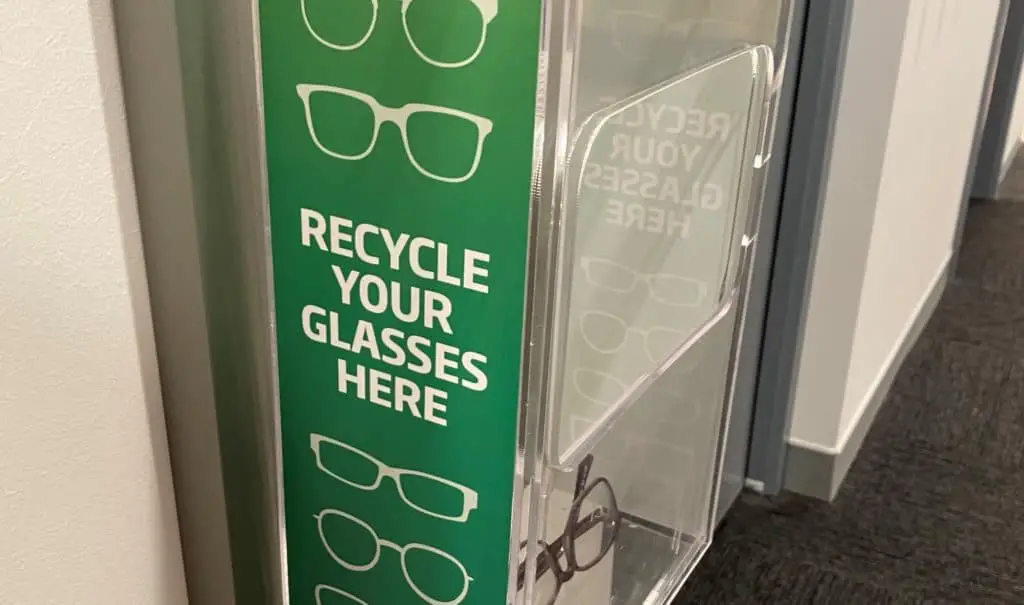
Should I throw away my glasses?
Glasses should not be thrown into your bin because there are other ways to deal with unwanted glasses or eyewear. Reglazing, repurposing, donating and recycling are some of the options you can consider to avoid throwing glasses into landfill.
In the blog post Don’t Throw Them Away – Practical Uses for Your Old Glasses I covered several options that could be considered as an alternative to sending glasses to landfill.
These options are listed below, along with links to further information if you need it:
These solutions may not be ideal – especially when it comes to eyewear that is beyond repair. And as noted in the sections below, when it comes to sunglasses, landfill may be the only option left at the end of the day.
Of course, the best thing is to make sure you take care of what you have in the first place – keep your eyewear in its case when not in use, clean them regularly and ensure you get the screws tightened (for free) by an optician so they can last as long as possible.
And consume consciously. Don’t fall for the latest fashion trends – buy timeless pieces that suit you.

If you can, buy quality  .
.
 .
. And consider sustainable eyewear brands. Many offer take-back schemes and ensure the frames are recycled if they can not be repaired, so you won’t need to worry about what to do with your glasses at the end of its life.
For sustainable eyewear brands check out this blog post: 7 Sustainable Prescription Eyewear Brands Worth Checking Out
For sustainable sunglass brands check out this blog post: 9 Sustainable Sunglass Brands Worth Checking Out
Can you put unwanted glasses in recycling?
No, you can not put unwanted glasses or sunglasses in your household recycling bin. While glasses and sunglasses are made from plastics and metals, they are not the type that can be processed by the council’s Material Recycling Facilities (MRFs). They will need to go elsewhere for recycling.
As noted earlier in this blog post, if you intend for your glasses to be recycled, take advantage of the services offered by the Lions Clubs Recycle for Sight program. Information on how to get your glasses to them was covered here.
Unfortunately, when it comes to sunglasses, the options are limited.
More on this below.
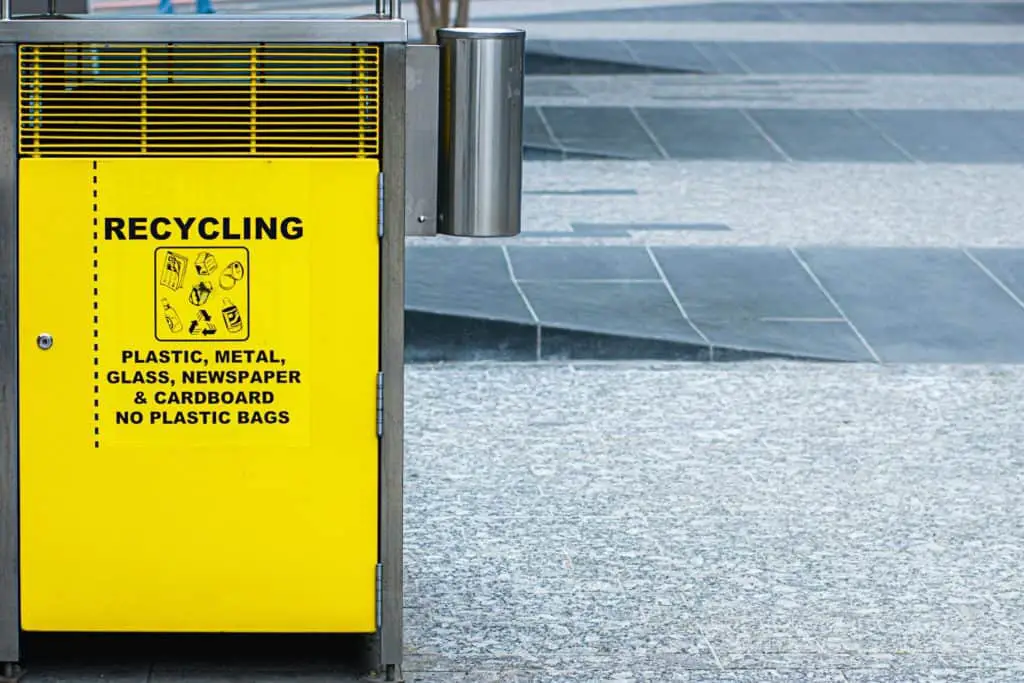
Can you recycle sunglasses?
No, sunglasses can not be recycled. While the materials in typical sunglasses can be recycled, there are no places in Australia that can facilitate this. Sunglasses are made from a mixture of materials and chemical coatings, which makes recycling costly and difficult to organise.
As noted previously with prescription eyewear, the different materials in glasses need to be separated before they can be recycled.
When it comes to prescription glasses, the Lions Club has set up facilities to sort through these. They do this so they can collect prescription eyewear for those in need.
There is no such need for sunglasses (probably because sunglasses are relatively cheap to purchase new). As such, the Lions Club does not perform the same sorting and separating functions for sunglasses.
So those collection points for unwanted eyewear that you see at councils, Specsavers and HCF branches, are for general eyewear only – not sunglasses.
That said, looking at this news report on the Lion Club, I did notice some boxes where organisers were collecting sunglasses that must of been sent to them. No doubt they do get these types of glasses and there is a process in place to deal with them. I am still awaiting for the Lions Club to get back to me on this.
If you have unwanted sunglasses, consider some of the other options listed below (click on the option that appeals to you for further information):
If you have purchased sunglasses from brands that have sustainability as a focus in their business model, they probably have end-of-life solutions for you. For more about these brands check out this blog post: 9 Sustainable Sunglass Brands Worth Checking Out
Otherwise, they will need to be thrown into landfill I’m afraid.
Can sunglass lenses be recycled?
No, sunglass lenses can not be recycled in Australia. While it is possible to recycle the materials used in sunglass lenses, the fact is no place in Australia is set up to separate the different materials in sunglasses, to ensure they get to the right place for recycling. So this means sunglasses, including their lenses, can not be recycled.
See the previous section for further information on this point.
Can you recycle Ray Bans?
Ray Bans, like any other sunglass, can not be recycled in Australia. Unfortunately, Ray Bans themselves do not offer any reuse or recycling services for the products they create.
See the section above for details on why sunglasses can not be recycled in Australia.
Recycling prescription glasses is both feasible and essential to prevent mountains of eyewear from ending up in landfill. By understanding the recycling processes involved, exploring the programs (well program!) available and making informed choices, we can actively contribute to reducing the environmental footprint of the eyewear industry.
Unfortunately the options for recycling sunglasses are essentially non-existent. While the technology exists, there is little incentive for outside organisations to invest in the process. It will require those in the industry to take responsibility for the end-of-life options for the products they produce for us to see any progress in this space.
xxx Tahsin

